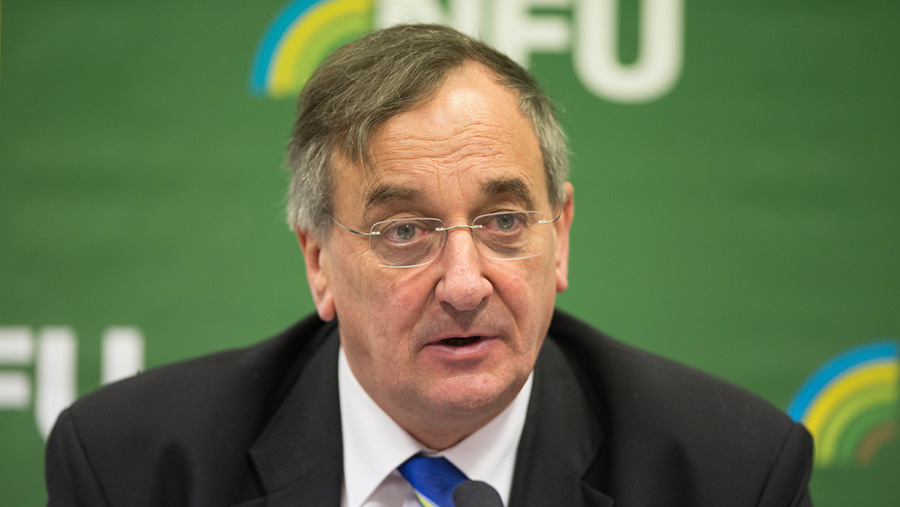Farm support must continue after Brexit, says NFU
 Meurig Raymond © Tim Scrivener
Meurig Raymond © Tim Scrivener The NFU has outlined the case for farm subsidies to continue after the UK leaves the European Union.
Farming delivers £7.40 back to the economy for every £1 invested in agriculture, according to a study commissioned by the union.
This 7.4:1 ratio is the return on investment for the nation – taking into account the value of farming to the UK and its costs, including direct payments.
See also: Leadsom’s lack of farm Brexit plan under scrutiny
The report was prepared by consultants from Development Economics.
It was published on the first day of the NFU’s annual conference, which is taking place in Birmingham on Tuesday and Wednesday (21-22 February).
The NFU claims it is the first time farming’s contribution has been expressed in monetary value – highlighting the sector’s positive economic, social and environmental effect.
‘Wise investment’
NFU president Meurig Raymond said: “This report demonstrates well that money invested by government into UK farming is money invested wisely.”
He added: “With the right trade and labour conditions, this sector could deliver an even greater return to the country.”
The report says farming contributed £46.5bn to the UK economy in 2015.
This included agricultural gross value added (£8.5bn), goods and services purchased (£15.4bn) and the value of countryside recreation for tourists and visitors (£21.1bn).
Other environmental benefits, including carbon savings from renewable energy and wildlife protection, were worth £1.6bn, says the report.
During the same year, costs included direct payments (£2.8bn), air, water and soil costs (£2.6bn) and carbon costs from agriculture (£0.9bn).
The report says: “Farming’s contribution was worth at least 7.4 times the support it received via direct payments plus the carbon costs and external costs for soil, air and water resources.”
‘Ensure viability’
Mr Raymond said: “With farms operating on 70% of British land, we must ensure these farms are viable businesses in order to carry on delivering this.”
As well as producing food, farming made a further vital contribution to the nation’s economic, social and environmental well-being, he added.
It’s important the government ensure farmers have the best possible trade deals, access to a competent and reliable workforce, and farm support that is “fit for purpose” after Brexit,said Mr Raymond.
“A future domestic agricultural policy has to work for Britain,” he said.
